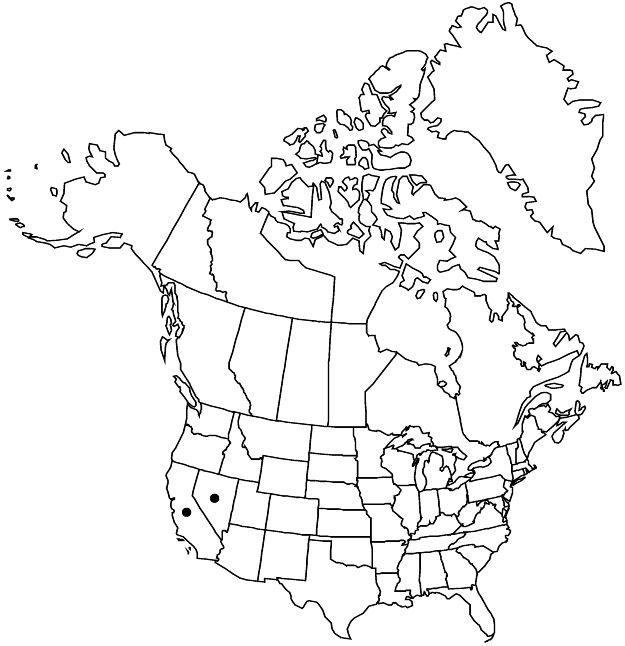Difference between revisions of "Mentzelia oreophila"
Ann. Missouri Bot. Gard. 21: 175. 1934.
FNA>Volume Importer |
imported>Volume Importer |
||
| (2 intermediate revisions by 2 users not shown) | |||
| Line 51: | Line 51: | ||
|publication year=1934 | |publication year=1934 | ||
|special status=Endemic | |special status=Endemic | ||
| − | |source xml=https:// | + | |source xml=https://bitbucket.org/aafc-mbb/fna-data-curation/src/2e0870ddd59836b60bcf96646a41e87ea5a5943a/coarse_grained_fna_xml/V12/V12_696.xml |
|genus=Mentzelia | |genus=Mentzelia | ||
|section=Mentzelia sect. Bartonia | |section=Mentzelia sect. Bartonia | ||
Latest revision as of 19:17, 5 November 2020
Plants perennial, bushlike, with subterranean caudices. Stems multiple, erect, straight; branches distal or along entire stem, distal longest or all ± equal, antrorse, upcurved; hairy. Leaves: blade 17–103 × 7.6–41.2 mm, widest intersinus distance 5.1–35.3 mm; proximal oblanceolate to elliptic, margins serrate, teeth 6–22, slightly antrorse, 0.4–5.3 mm; distal elliptic, lanceolate, or deltate, base clasping, margins serrate, teeth 6–16, slightly antrorse, 0.5–4.2 mm; abaxial surface with complex grappling-hook trichomes, adaxial surface with complex grappling-hook and needlelike trichomes, both surfaces green, moderately hairy. Bracts: margins entire. Flowers: petals golden yellow, 7–14.5(–16.2) × 1.7–5.2 mm, apex rounded, glabrous abaxially; stamens golden yellow, 5 outermost petaloid, filaments narrowly spatulate, slightly clawed, 5.3–11.1(–15.4) × 0.6–4.4 mm, with anthers, second whorl with anthers; anthers twisted after dehiscence, epidermis smooth; styles 3.8–8.1 mm. Capsules cup-shaped, 5.8–9 × 5.2–8.8 mm, base rounded, not longitudinally ridged. Seeds: coat anticlinal cell walls straight, papillae 6–17 per cell. 2n = 22.
Phenology: Flowering Feb–Oct.
Habitat: Sparsely vegetated slopes, roadcuts, loose, rocky and sandy limestone soils.
Elevation: 400–1600 m.
Discussion
Mentzelia oreophila is found in Inyo, Riverside, and San Bernardino counties, California, and Clark, Esmeralda, Lincoln, and Nye counties, Nevada. The California populations have a smaller stature than those in Nevada, and phylogenetic analysis indicated that the species is potentially polyphyletic.
Selected References
None.
